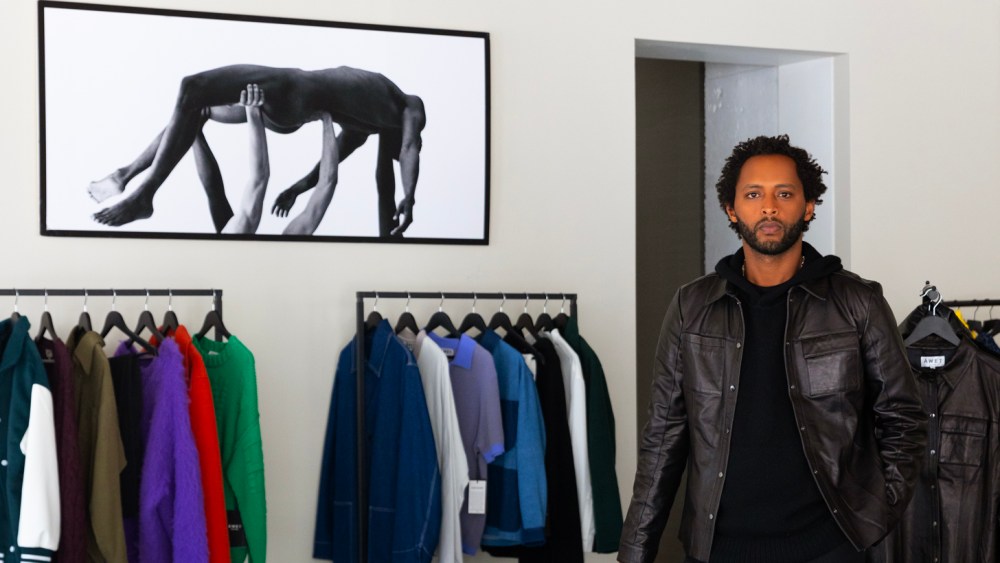The Hermès Birkin bag has long been synonymous with exclusivity, but according to artistic director Pierre-Alexis Dumas, its scarcity isn’t part of a deliberate marketing strategy. In a “60 Minutes” profile aired on Monday, Dumas attributed the shortage to the brand’s dedication to craftsmanship.
“Whatever we have, we put on the shelf, and it goes,” he said, emphasizing that the limited supply is a consequence of Hermès’ meticulous production process.
The bags start at around $10,000 at retail, with prices varying significantly based on materials and size. On the resale market, however, prices can skyrocket. As WWD recently reported, a white Himalaya Birkin with diamond-encrusted hardware sold for over $450,000 at Sotheby’s in 2022, breaking records for the most expensive Birkin ever auctioned.
You May Also Like

Dumas offered a candid response when reporter Sharyn Alfonsi asked how someone could get their hands on the coveted bag. “You have to walk into an Hermès store, and uh — you have to be patient,” he said.
“But you know the world we live in, right?” Alfonsi said. “You know that if somebody has the funds and they want the bag, they want the bag now.” Dumas responded: “Yes. Um, I have children too. And I have desires too. But I’m saying it’s a long process. You go to a store. You get an appointment. You meet a salesperson. You talk about what you want. It’s not available. You’ll have to wait. They’ll come back to you. It takes a long time. Eventually, it’s gonna happen.”
When asked if Hermès is creating “artificial scarcity to pump up demand” for the Birkin, he responded: “It makes me smile that this is — a diabolical — marketing idea that can only come out of people obsessed with marketing. But we don’t have a marketing department at Hermès. So first of all, when I heard that, I was like, ‘What? Oh. OK, I get it. Yeah, well, no.’ Whatever we have, we put on the shelf, and it goes.”
Unlike luxury brands that rely on scaling manufacturing to meet demand, Hermès is bound by its artisanal roots, he said. Each Birkin is handcrafted by a single artisan over days, sometimes weeks. From the brand’s signature saddle stitching to materials sourcing, Dumas said the detail reflects a commitment to tradition. “We’re about craft, we’re not machines,” Dumas said. “And we are not compromising on the quality of the way we make the bags.”
During the “60 Minutes” segment, Hermès offered a rare glimpse inside one of its leather goods factories, where the intricate process of handcrafting each bag was demonstrated. A single artisan showcased the brand’s iconic saddle stitch, which requires precision and patience. Depending on the complexity and materials, it can take an artisan several weeks, sometimes months, to produce just one Birkin bag.
The restrained approach has left Hermès facing one of the challenges in luxury retail: demand that far outpaces supply. As WWD’s Lily Templeton reported earlier this year, Hermès International’s sales in the first quarter of 2024 rose 23 percent to 3.38 billion euros, driven largely by its leather goods division, which includes the Birkin and Kelly bags.
With adding new leather-working facilities and training approximately 400 artisans annually, it’s unlikely the gap between production and demand will close anytime soon. “You cannot go fast if you want to go far,” Dumas said during his “60 Minutes” interview.
Hermès opened its 23rd leather goods factory in France earlier this year. In its most recent quarterly earnings, leather goods sales accounted for more than half of the company’s total revenue.
Adding to Hermès’ mystique is its signature orange branding, a detail born out of necessity during World War II. Shortages of traditional packaging materials led Hermès to adopt orange boxes — a “happy accident,” he said, that has since become one of the most recognizable trademarks in luxury.


